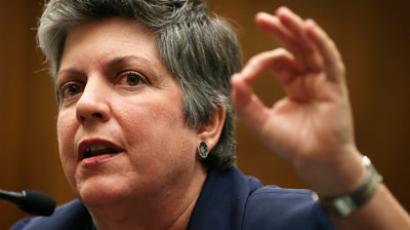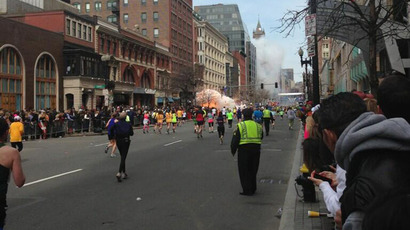Israeli police head to US to aid in Boston Marathon bombing investigation

The investigation into Monday’s deadly bombing at the Boston Marathon has officially gone international: law enforcement officials from Israel have been sent to the United States to assist in the probe.
Israel Police Chief Yohanan Danino says he has dispatched officials to Boston, Massachusetts, where they will meet with Federal Bureau of Investigation agents and other authorities, the Times of Israel Reports.
Citing an earlier report published by the newspaper Maariv, Times of Israel writes that Danino has dispatched police officers to participate in discussions that “will center on the Boston Marathon bombings and deepening professional cooperation between the law enforcement agencies of both countries.”
The paper reports that Israeli law enforcement planned the trip before the deadly pair of bombings on Monday that has so far claimed three lives, but the discussions will now shift focus in order to see how help from abroad can expand the investigation.
In an address made Tuesday, Israel President Shimon Peres said that tragedies such as this week’s incident in Boston, sadly, bring people together from across the world.
“When it comes to events like this, all of us are one family. We feel a part of the people who paid such a high price. God bless them,” Peres said. “Today the real problem is terror, and terror is not an extension of policy: Their policy is terror, their policy is to threaten. Terrorists divide people, they kill innocent people.”
Around 20 hours after two bombs detonated near the finish line
of the annual race, United States President Barack Obama went on
record to condemn the tragedy as a terrorist attack.
“This was a heinous and cowardly act,” said Obama from the White House, “and given what we now know the FBI is investigating it as an act of terrorism.”
But even as officials come to assist from as far away as Israel, authorities are still in the dark as far as finding any leads in the case. Pres. Obama has directed the FBI and US Department of Homeland Security to assist in the investigation, but no agencies have identified suspects or motives at this time.
Pres. Obama has also said that his administration has been directed to implement “appropriate security measures to protect the American people,” but details as to what that could mean remain scarce. Meanwhile, at least one leading lawmaker is asking for the US to respond to the terrorist attack by increasing the scope of the ever-expanding surveillance program already growing across the United States.
“I do think we need more cameras,” Rep. Peter King (R-New York) told MSNBC after Monday’s attacks. “We have to stay ahead of the terrorists and I do know in New York, the Manhattan Security Initiative, which is based on cameras, the outstanding work that results from that. So yes, I do favor more cameras. They're a great law enforcement device. And again, it keeps us ahead of the terrorists, who are constantly trying to kill us.”
New York Mayor Michael Bloomberg has also confirmed that he has dispatched law enforcement officers from the Big Apple to assist in the investigation by meeting with agents at a Boston fusion center, one of the DHS-funded data facilities that collects surveillance camera footage and other evidence in order to analyze events like Monday’s attack.
“We are certainly engaged in the information flow with the FBI through our Joint Terrorism Task Force. We have two New York City police officers, police sergeants, who are in the Boston Regional Intelligence Center,” Bloomberg said on Tuesday. “They’re up there, they’ve been up there since last evening.”
But in a study conducted last year by the Senate’s bipartisan Permanent Subcommittee on Investigations, lawmakers found that those fusion centers have been more or less unhelpful in assisting with terrorism probes.
The Department of Homeland Security’s work with state and local fusion centers, the subcommittee wrote, “has not produced useful intelligence to support federal counterterrorism efforts.” Instead, they added, so-called “intelligence” shared between facilities consisted of tidbits of shoddy quality that was often outdated and “sometimes endangering [to] citizen‘s civil liberties and Privacy Act protections.”
“More often than not,” the panel added, information collected and shared at DHS fusion centers was “unrelated to terrorism.”














